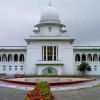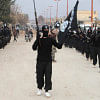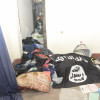It is collective security that we want

There is no doubt that a deep sense of insecurity pervades the mind of the people in the country. And this I say risking being labeled a fear-monger and alarmist. But the reality is that people are being killed in broad daylight and not even homes are adequate protection against the clandestine groups; and there is nothing clandestine about their actions, they are deterred neither by people nor by daylight. Thus the statement of the home minister that there is nothing to worry is little comfort to the common person who is not sure when it will be his or her turn to get hit.
These incidents are not isolated, much as the administration would have us believe, and we will be completely amiss were we to go only by the number of people killed in these attacks. These killings are not a matter of law and order either, although that aspect leaves much to be desired, given that as per report in one newspaper, more than a thousand people have been killed in the last three months alone. The extremists are targeting individuals. From foreigners to clerics, both Muslim and non-Muslim, to teachers and bloggers to activists, it is the persona of the victims that should give a fairly good idea about the psyche of the killers.
Anybody doing anything that is anathema to these bigoted groups has met with the inevitable fate. The state has been unable to prevent recurrence of the attacks. Therefore it is not enough to say, as the home minister does, that the militants who were active in the past are now either in jail, or facing trials or under surveillance, and that the government did not let the militants raise their heads in any parts of the country. Apparently there are many militants that have not been netted, and it seems those under surveillance have managed to give their watchers the slip and carry out their killing missions, which, by the way, were well planned and conducted in a professional manner, one hates to admit. Going by the way that these groups are operating it is not they who have been cowed down.
The urgent need is to track them down and bust the gangs. There is little doubt that the killings, since 2013 in particular, have been perpetrated by the same group or groups that hold similar ideologies as the major international terrorist groups, quite apparent from the selection of targets. And the motivation behind the recent killings, we believe, is the same as those that have provoked the killings in the recent past. And at this point several statements emanating from very senior personalities of the government and the administration engage our thoughts.
Finger has been pointed at the main opposition and its partner accusing them of fomenting trouble to destabilise the government. This is not an improbable proposition and therefore it devolves on the government to take appropriate measures. But one wonders whether at this point in time the party is capable of or prepared to risk their future by targeting individuals. If it is to destabilise it should have realised that this sort of killings do not bring down a government, let alone destabilise it.
The undue preoccupation of the administration in trying to disprove the presence of IS in the country is noticeable. One feels that the home ministry is taking the word 'presence' too literally. Of course we have no report of IS entering Bangladesh through the borders and we can vouch that IS soldiers have not parachuted into our territory to set up a base. To that extent certainly there is no IS 'presence' here. However, we cannot overlook the fact that there are a number of Islamic militant groups in the country, and at least 12 of those have been outlawed by the government. Can we guarantee that some of those do not have ideological moorings in the IS philosophy even if not organically linked to the group? We should be worried about the fact that the people are being killed by extremists and the motive is religious. But whatever may be their label they must be stopped immediately.
It is by netting the masterminds that the state can bring relief to the people. We understand very well that it is not possible to provide individual security, but an individual can be made to feel safe when he or she will know that such killers have been neutralised and those not will be prevented before they can act. And safe individuals mean a safe society. It is not individual protection we ask for but a sense of collective safety. And this bounden duty the police cannot absolve itself of.
The writer is Associate Editor, The Daily Star.

 For all latest news, follow The Daily Star's Google News channel.
For all latest news, follow The Daily Star's Google News channel. 








Comments